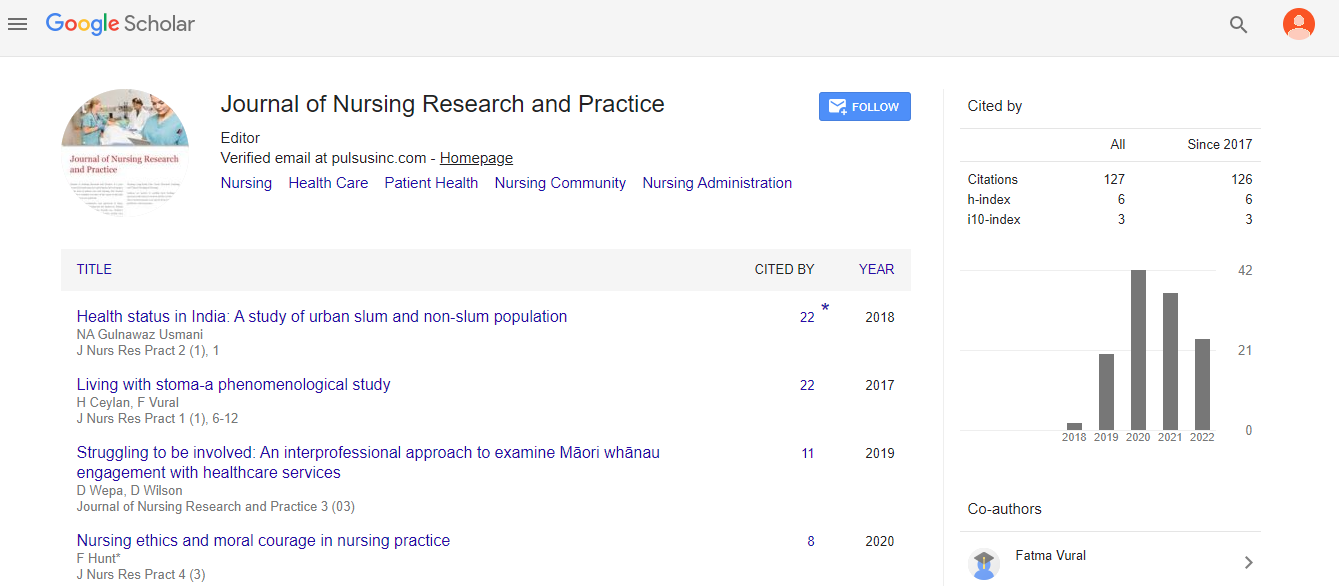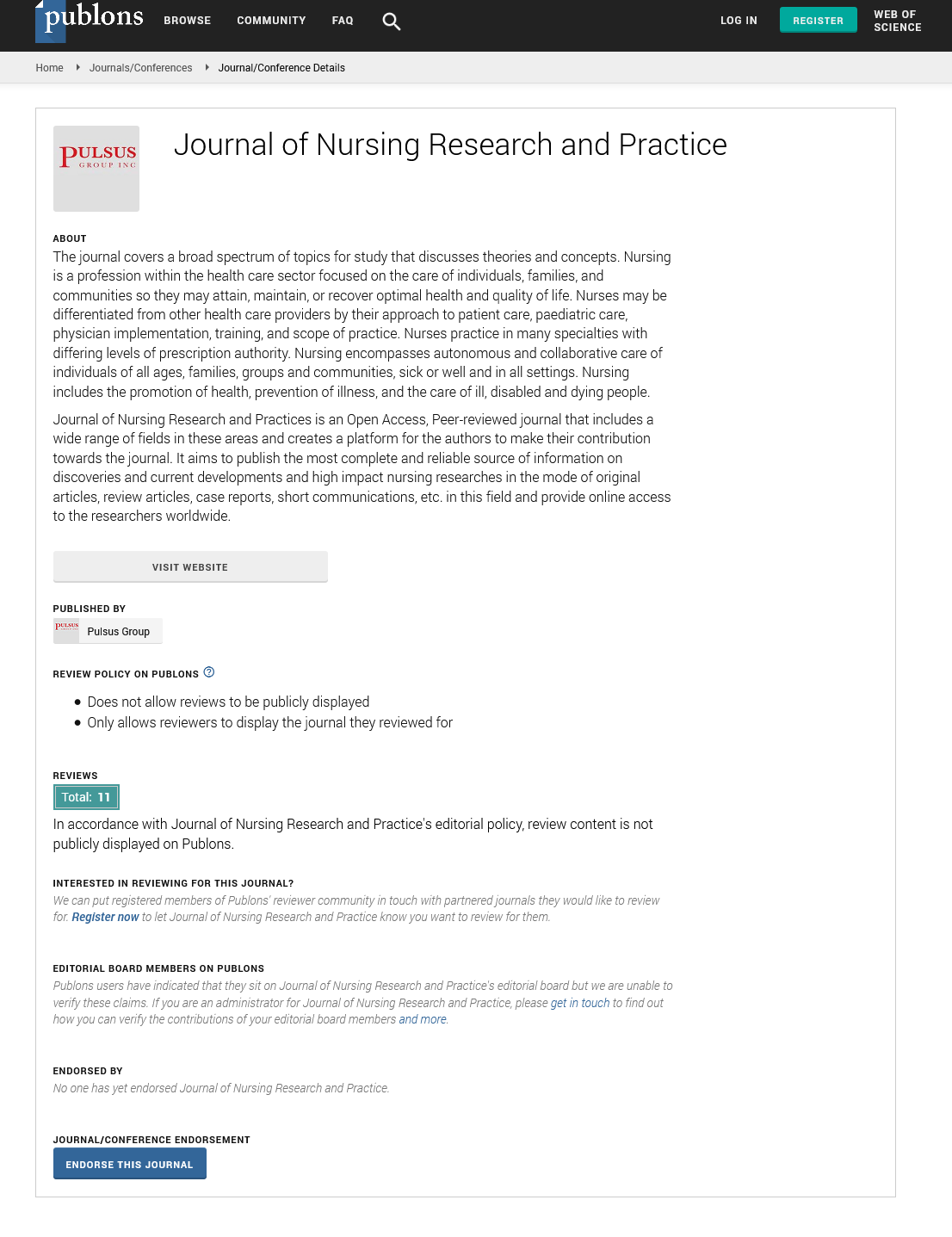
Sign up for email alert when new content gets added: Sign up
Evaluating the effectiveness of the Supportive Parenting App (SPA) on Parental Outcomes: A Randomized Controlled Trial
World Congress on Nursing and Healthcare
November 21, 2022 | Webinar
Shefaly Shorey
National University of Singapore, Singapore
Keynote: J Nurs Res Pract
Abstract :
Background: Adjusting to new or additional parenting responsibilities can lead to increased stress levels and affect the parental well-being. Existing research has highlighted both fathers’ and mothers’ desire to receive more support. It has also been found that receiving sufficient social support enhances parenting outcomes. With the increasing popularity of mobile health applications, the Supportive Parenting App (SPA) intervention was developed to fulfil the support needs of parents during the perinatal period. Objective: This study aimed to examine the effectiveness of the SPA on parental outcomes during the perinatal period. Methods: A two-group pre-test and repeated post-tests randomized controlled trial was conducted, where 200 couples (N=400 mothers and fathers) were recruited from two public healthcare institutions in Singapore. Parents were randomly assigned into intervention (n=100) or control (n=100) groups. The SPA intervention consisted of a mobile application-based psychoeducation program to support parents from pregnancy till six months postpartum. It was a one-stop resource centre for new parents that included parenting-related educational content, discussion forums, peer support and expert advice. Outcome measures included postnatal depression, anxiety, parental bonding, parental self-efficacy, perceived social support and parenting satisfaction. Data were collected from baseline (at more than 24 weeks of gestation – age of viability in Singapore) and at first, second fourth, sixth, ninth till 12th month postpartum. Linear mixed models were used to compare parental outcomes between groups and linear mixed model for repeated measures was used to examine within group changes. Results: Parents in the intervention group mostly showed better parental outcomes compared to control group parents. Intervention group parents had higher perceived social support than those in the control group at the first (effect size=1.59, 95% CI [0.38, 2.80], P=.01), second (effect size=1.98, 95% CI [1.09, 2.88], P=.003) and fourth (effect size=2.57, 95% CI [1.62, 3.51], P=.048) month postpartum. However, the intervention group parents showed significantly poorer parental bonding (effect size=1.67, 95% CI [0.24, 3.11], P=.02). The other parental outcomes did not differ significantly between both groups. Scores of mothers and fathers also differed significantly for all outcomes except parental self-efficacy. Conclusions: Parents in the intervention group generally fared better, especially in terms of perceived social support. However, the lack of statistical significance in most outcomes showed the limited effectiveness of the SPA intervention, which might be due to the COVID-19 pandemic. Parental differences in outcome scores suggest that mothers and fathers have different support needs, thus interventions should be tailored accordingly. Further improvements and evaluations are needed to examine the effectiveness of the SPA intervention in enhancing parental outcomes. Despite statistically insignificant results, the limitations should be considered to further improve mobile-health application-based interventions like SPA, as they could serve as reliable and convenient sources of support for parents.
Recent Publications :
1. Shorey, S., Tan, T. C., Thilagamangai., Mathews, J., Lim, S. H., Shi, L., . . . Chong, Y. S. (2022). Perinatal support for couples during COVID-19: A descriptive qualitative study. JOURNAL OF CLINICAL NURSING, 15 pages.
2. Shorey, S., Chee, C. Y. I., Ng, E. D., Lau, Y., Dennis, C. -L., & Chan, Y. H. (2019). Evaluation of a Technology-Based Peer-Support Intervention Program for Preventing Postnatal Depression (Part 1): Randomized Controlled Trial. JOURNAL OF MEDICAL INTERNET RESEARCH, 21(8), 14 pages.
3. Shorey, S., Ang, E., Yap, J., Ng, E. D., Lau, S. T., & Chui, C. K. (2019). A Virtual Counseling Application Using Artificial Intelligence for Communication Skills Training in Nursing Education: Development Study (vol 21, e14658, 2019). JOURNAL OF MEDICAL INTERNET RESEARCH, 21(11), 2 pages.
Biography :
Shefaly Shorey is an Associate Professor with tenure at Alice Lee Centre for Nursing Studies, National University of Singapore (NUS). Her research program focuses on family and women’s health. She has designed psychosocial and educational interventions for a varied group of populations and has published more than 160 peer-reviewed papers in high-impact factor journals. Dr. Shorey has received various awards for her academic and research excellence. She has presented at national and international conferences extensively and recently, she was awarded as President Nurse Award 2021, the highest nursing accolade for Singapore nursing.





